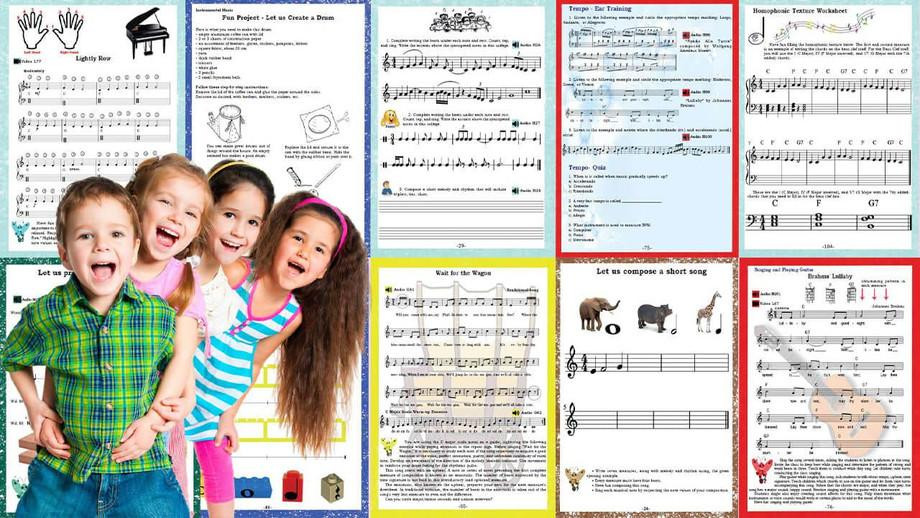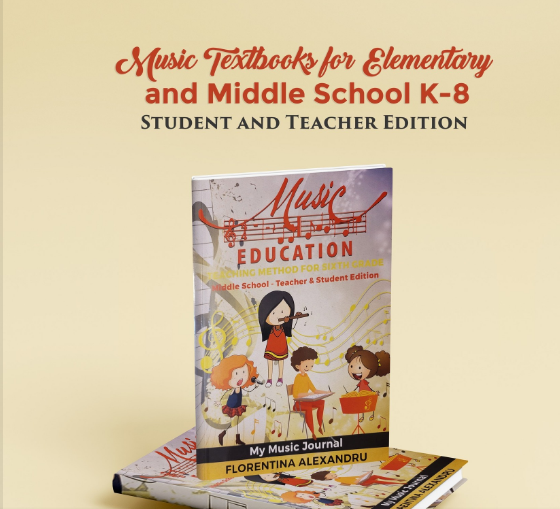Unlocking the Power of Music Education: A Comprehensive Approach to Homeschool Music Curriculum
Body
In today’s dynamic educational landscape, many parents and educators are turning to homeschooling as a flexible and tailored approach to meet the individual learning needs of children. One subject that is gaining increasing recognition in the homeschooling community is music. A strong homeschool music curriculum can significantly enhance a child’s cognitive, social, and emotional development. This blog will explore the essential elements of creating a successful homeschool music curriculum and provide practical resources for parents looking to teach music at home.
Building a Foundation with Music Lesson Plans
When designing a homeschool music curriculum, the first step is to create well-organized music lesson plans. These plans provide a structured framework for teaching music, ensuring that each lesson builds on the last while covering key musical concepts. A well-thought-out curriculum offers students the opportunity to explore various aspects of music, including rhythm, melody, harmony, and even the history of music.
For parents new to teaching music, it’s essential to create lesson plans that are engaging, accessible, and adaptable to the child’s pace. Start by outlining the major topics or concepts you want to introduce in each lesson. Incorporate a variety of activities, such as singing, playing instruments, and listening to different genres of music. This will keep the lessons fresh and exciting, while also ensuring that children develop a well-rounded understanding of music.
Tailoring to Younger Students: Kindergarten and Elementary Music Lesson Plans
When working with younger students, especially in the early stages of education, it’s essential to adapt the music lesson plans to be developmentally appropriate. Kindergarten music lesson plans should focus on introducing basic concepts like pitch, rhythm, and the sounds of different instruments. Activities such as clapping rhythms, singing simple songs, and using percussion instruments can help children internalize these musical elements in a fun and hands-on way.
For slightly older children in elementary grades, elementary music lesson plans can introduce more complex topics, such as note recognition, simple scales, and even the concept of musical notation. Teachers may also begin to incorporate more structured exercises, such as learning to play a simple instrument, or engage in group activities like singing in rounds or playing in a small ensemble.
It’s also a great idea to introduce some music appreciation at this stage, exposing children to famous composers and different music styles from around the world. This helps build a rich cultural understanding and appreciation for music that will serve them well as they grow.
Structuring the Elementary Music Curriculum
Creating a strong elementary music curriculum is essential for establishing a solid foundation in music education. This curriculum should integrate multiple elements of music, including theory, performance, and listening skills. Each lesson should aim to enhance students' musical abilities, providing a balance between instruction and creative freedom.
In an elementary music curriculum, start with teaching basic music theory—understanding rhythm, scales, and key signatures. As students progress, you can delve into more advanced concepts such as dynamics, phrasing, and harmony. At this stage, it’s important to give children opportunities for hands-on learning, allowing them to apply what they’ve learned by engaging with real instruments or participating in group performances.
A key component of a well-rounded curriculum is fostering a love for music. It’s important to integrate various music activities that allow children to explore their creativity. This can include composing simple melodies, improvising with instruments, or participating in music-based games. Making music fun and interactive is critical for maintaining engagement.
Documenting Progress with a Music Journal
One effective tool for tracking progress in music education is a music journal. This personalized journal can be used to record musical activities, reflect on what students have learned, and set goals for future lessons. A music journal can be an invaluable resource for both students and parents, providing insight into the child’s musical journey.
For younger children, a music journal might include drawings, song lyrics, or photos of instruments, offering a creative outlet for students to express their thoughts about music. As students grow older, they can use their journal to document more technical aspects of their learning, such as music theory notes, practice logs, and reflections on performances. The journal serves as both a tool for self-assessment and a motivational instrument to keep students engaged in their musical studies.
Why Apollo Publishing LLC is the Go-To Resource for Homeschool Music Curriculum
For homeschooling parents looking to create an effective and engaging homeschool music curriculum, resources from companies like Apollo Publishing LLC can be incredibly valuable. Their comprehensive educational materials, which include music lesson plans and curriculum guides, are specifically designed to meet the needs of homeschooling families. By integrating well-researched educational strategies, Apollo Publishing LLC helps parents create a music curriculum that is both fun and effective, ensuring that their children receive the best possible music education at home.
With Apollo Publishing LLC’s curriculum, parents have access to structured elementary music lesson plans that break down complex musical concepts into digestible lessons. Whether you’re looking for kindergarten music lesson plans or more advanced lessons for older children, Apollo’s materials are flexible and easy to adapt to your child’s learning pace.
Conclusion
Integrating music into your homeschooling journey not only enriches your child’s education but also provides them with lifelong benefits. From enhancing cognitive abilities to fostering creativity, a solid homeschool music curriculum can transform a child’s academic experience. With thoughtful music lesson plans, developmentally appropriate activities for young children, and a comprehensive elementary music curriculum, parents can create an engaging and effective music education at home. And with the help of trusted resources like Apollo Publishing LLC, your homeschool music curriculum can be both enjoyable and academically rigorous, providing your child with the foundation they need to excel in music and beyond.
By focusing on a well-rounded approach to music education, including keeping a music journal and adapting lesson plans to your child's learning stage, you ensure that music becomes not only a subject but a cherished part of your child’s life.












Comments